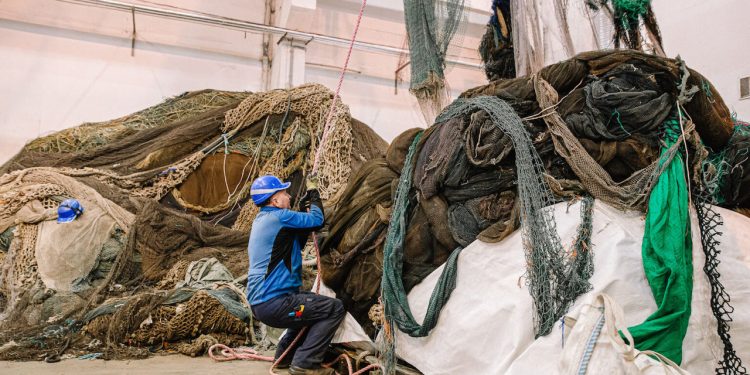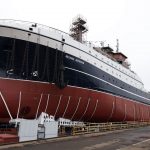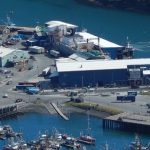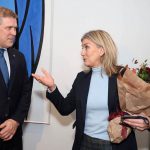One of the leading recyclers of fishing and aquaculture equipment, the Bodø-based Nofir expects its work to become more complicated as new EU requirements come into force.
‘It’s well-intentioned, but this could be counter-productive,’ said Nofir general manager Øistein Aleksandersen.
Regulation of the export and treatment of waste across national borders has been tightened considerably in the EU over the past decade, including with new export rules for hazardous waste in 2018 – and now most recently with the border crossing regulation. This will be incorporated into Norwegian law in the next six months, with some of its effects expected to be felt in 2025 and 2026.
According to Øistein Aleksandersen, this is going to present challenges.
‘We have never had as much work as now, and it will be demanding to cope in both administrative and costs terms. This is in addition to an extreme approach in the recycling of waste, which has been called for by the various plastic-consuming industries, and ordered by the politicians themselves,’ he said.
Under the new changes in Norwegian law, they will have to go from 20 to 150 export permits for waste which is mainly recycled through collaboration partners in Italy, Slovenia and Denmark. additional resources have to be dedicated to this, which results in a sixfold increase in the number of applications.
Nofir has consistently broken records in processing end-of-life fishing and aquaculture gear, and the company has also experienced several rounds of new regulation in the past.
‘It is worse for smaller players, who may not have the same opportunity to bring in new resources or handle such an increased volume of work. This can again have negative environmental consequences if companies take shortcuts or are unable to deliver on everything they are supposed to, and we have seen examples of this in the past,’ he said, commenting that it is a concern that recycling could become so expensive that companies looking to dispose of waste could lose faith in the system, and that work on circular solutions and recycling will decline.
‘The blue industries have made quantum leaps in recent years and are well on track to become supremely the most circular among the large plastic-consuming industries in Norway. Our fear is that people lose interest in investing in, for example, material recycling if the costs through the value chain become too high,’ he said.
‘We must avoid that at all costs, and we hope that the authorities will in future work more closely with the European authorities to ensure that the larger, serious players do not have increasingly expensive requirements added to the top of an already long list.’









